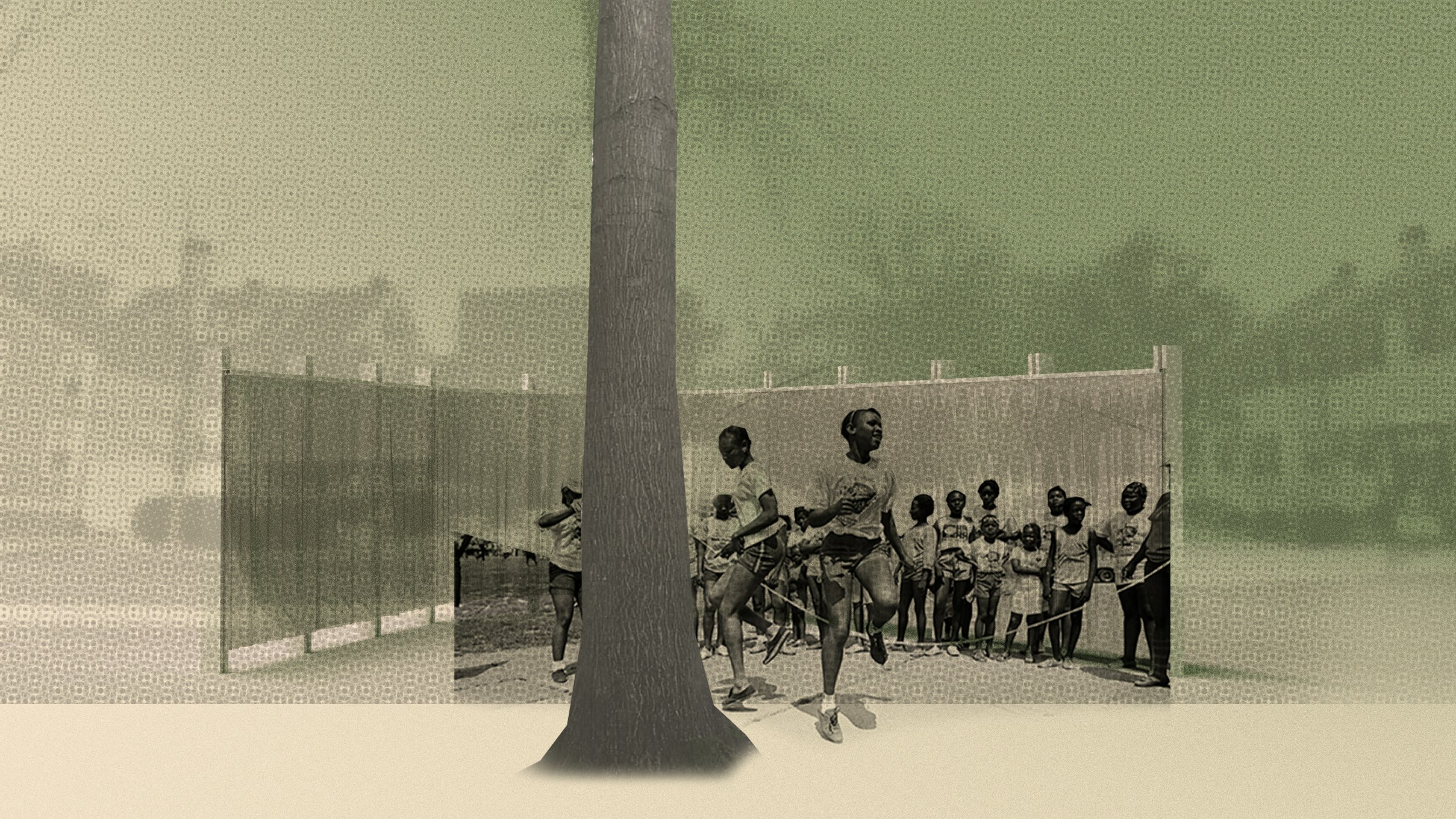Harvard Radcliffe Institute Announces Winners of Public Art Competition

Two GSD students will use sculpture to transform the Wallach Garden into a space for reflection on “the complicated relationship Black folks maintain with enclosure.”
Contact: Mac Daniel
Associate Director of Communications
Harvard Radcliffe Institute
mac_daniel@radcliffe.harvard.edu
857-276-4949
CAMBRIDGE, Mass. (July 27, 2023)—Harvard Radcliffe Institute today announced the winners of the biennial Radcliffe Institute Public Art Competition. The Harvard Graduate School of Design students Curry J. Hackett MAUD ’24 and Gabriel Jean-Paul Soomar MArch II ’24, MDes ’24 won for their innovative proposal titled HOLD, a 30-foot-long U-shaped enclosure designed to symbolize the spaces Black folks construct for themselves, nodding to the screened porches of the American South while acknowledging the cargo holds of slave ships.
The competition—which has been on pause due to the pandemic—offers Harvard students an opportunity to showcase innovative projects at the intersection of art, landscape design, and structural architecture. Participants compete for a prize that includes funding for construction of the artwork and mentorship throughout the process of installation in the Susan S. and Kenneth L. Wallach Garden on Brattle Street.
HOLD is designed to be “an outdoor experience that acknowledges and celebrates the complicated relationship Black folks maintain with enclosure,” the artists said in a statement. The structure will serve as a reminder of the various ways in which Black mobility has been restricted (redlining, incarceration, slavery) while also calling to mind the spaces Black communities build for themselves (the Black church, the front porch, the hair salon)—spaces which signify safety and embrace.
Hackett and Soomar intend for HOLD to be a gathering place for events and classes—a place “for Black students and underrepresented students across campus to find space and create space for themselves.”
“The act of installing [HOLD] hopefully … invites people to consider ways that they can hold space for people that may be unseen in their own lives or in their own communities,” said Hackett.
This public art installation is the first for Soomar and the fourth for Hackett, although Soomar has seen his work exhibited at such notable institutions as New York’s Museum of Modern Art and the Venice Biennale Architettura 2023.
Hackett emphasizes that public art is a useful format for telling stories and encouraging people to rethink their environments. In some instances, art galleries and museums represent a kind of enclosure that restricts access to certain groups; HOLD and other public artworks work against that kind of constriction.
The collaboration between Hackett and Soomar arose out of shared research interests: Soomar was researching the Black Caribbean and Hackett the Black American South when they both found themselves grappling with these histories in the context of Harvard as a mostly white, elite institution. Further discussions led them to the topic of enclosure and what it has meant to Black bodies in different contexts over time.
The installation is intended to echo and respond to existing spaces while creating a new space for reflection and community. Hackett and Soomar took inspiration from the architectural forms found on the Radcliffe campus—windows, doors, and the shape of Radcliffe Yard all contributed to their decision to go with a horseshoe design.
The two winning designers are currently working with a team at Radcliffe to flesh out their construction drawings, lock in details about budget and materials, and solicit the project to a contractor for fabrication and installation. The artwork is expected to be unveiled in May 2024.
About Harvard Radcliffe Institute
The Radcliffe Institute for Advanced Study at Harvard University—also known as Harvard Radcliffe Institute—is one of the world’s leading centers for interdisciplinary exploration. We bring students, scholars, artists, and practitioners together to pursue curiosity-driven research, expand human understanding, and grapple with questions that demand insight from across disciplines. For more information, visit www.radcliffe.harvard.edu.







